Ready to build one of your domain names into a full-fledged website? Adding eCommerce functionality is easier than ever. You just need to decide which eCommerce platform to use.
[clickToTweet tweet=”Which eCommerce platform best suits your needs?” quote=”Which eCommerce platform best suits your needs?”]
Unfortunately, with so many available options, you may not know which eCommerce platform best matches your needs. So let’s take a look at five popular eCommerce systems.
eCommerce Platform Options for Online Shop Owners
1. WooCommerce
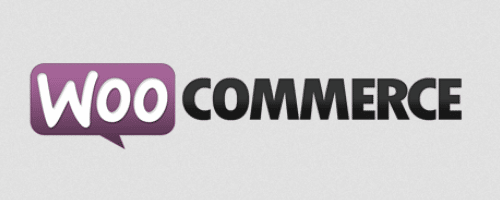
WooCommerce is one of the most popular eCommerce platforms on the market today. It is great for those testing the eCommerce waters thanks to its low cost and ease of use. WooCommerce comes as a free WordPress plugin, which is perfect for those who already have a WordPress website. In addition, it also offers additional free and premium extensions you can purchase to extend your shop’s functionality.
- Sell both physical and digital goods
- Built-in payment gateways include PayPal, BACs, and cash on delivery
- Mobile responsive design for selling to customers on all devices
- Sucuri auditing ensures top notch security measures
- Scalability allows your shop to grow
- All shop data is independent of third-party software, meaning you own it all
Price: FREE
2. Shopify
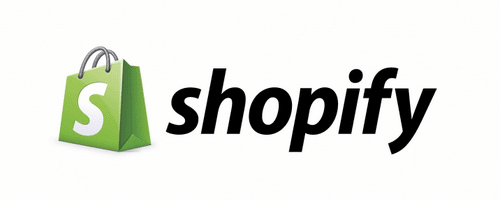
Shopify is a great option for small to medium sized businesses looking to operate an online shop with very little coding knowledge. It mimics a website builder This means you have access to all the tools, hosting services, and customization options you need to build a successful online shop that sells both digital and physical products.
- Online shopping cart integration
- Easy to use drag & drop store builder
- Accept payments from any device – sell online, on social media, in store, or on-the-go
- Full blogging platform and built-in analytics
- Over 70 available payment gateways
- 24/7 email, live chat, and phone support
Price: $29/month
3. PrestaShop
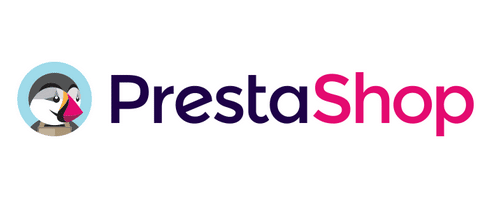
PrestaShop is great for those starting small that want to grow big in the future. This scalability, as well as its low cost to use (no monthly or transactional fees), is what makes it one of the leading eCommerce platforms for small, medium, and large online shops.
- Over 50 payment solutions to choose from
- Build website from the ground up using website building tools
- Over 600 customizable features for branding and personalization
- Adapt to international customers by setting global currencies and translating content
- Built-in marketing, performance, sales, and customer insights
- Sell physical and digital products
Price: FREE
4. Magento
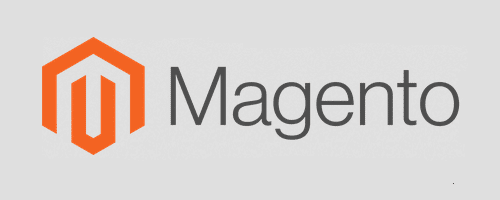
Magento is an eCommerce platform for major online retail shops. It houses your entire store in the cloud and ensures fast delivery of content to customers, no matter where they come from. Magento also guarantees that large retail shops experiencing unexpected sales can rest easy knowing their site will never crash.
- Premium plugins and extensions designed to extend site functionality
- Unlimited transaction numbers and fully scalable
- Thousands of pre-designed templates
- Extensive SEO, analytics/reporting, and marketing tools
- Translation support for international customers
- Magento Expert Consulting Group offers migration, business analysis, architecture advice, code audits, and more
Price: FREE
5. BigCommerce
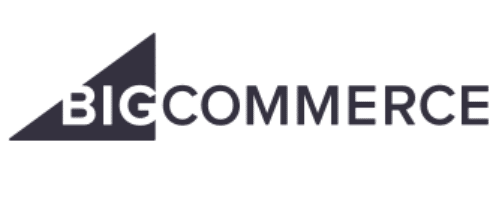
BigCommerce is designed for online stores earning millions in sales. In addition to your online shop, list your products on Amazon, eBay, and Facebook. Build a beautiful storefront, market to new customers, and manage your store using this full-featured CMS.
- Maximize uptime using BigCommerce’s secure hosting services
- International selling options
- Marketing tools such as built-in banners, product comparisons, and live chats
- Responsive, pre-built templates
- Built-in blogging platform
- Easy migration of growing shops to BigCommerce platform
Price: $29.95/month
Final Thoughts
In the end, there are so many eCommerce platform options to choose from that the thought of deciding which one to use can be extremely challenging.
Hopefully this roundup of popular choices leads you in the right direction. This way, you can concentrate on boosting sales rather than building your online shop.






I went to Prestashop and noticed the “.com” domain name used.
Since there is a “.shop” new domain name extension, I hit http://www.presta.shop in my browser…
nice compilation, could you provide next time an article about marketppalce payment processors ? could be a good continuation.
Hi asset.domains,
Thank you so much for stopping by and checking out some of the best eCommerce platforms on the market today.
I agree, understanding everything there is to know about payment processors, including which ones are top notch, is a great idea. Maybe we can run something like that in the future. Thank you for the suggestion!